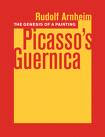"Man's real work is to look at the things of the world and to love them for what they are. That is, after all, what God does, and man was not made in God's image for nothing. The fruits of his attention can be seen in all the arts, crafts, and sciences. It can cost him time and effort, but it pays handsomely. If an hour can be spent on one onion, think how much regarding it took on the part of that old Russian who looked at onions and church spires long enough to come us with St Basil's Cathedral."
"But if man's attention is repaid so handsomely, his inattention costs him dearly. Every time he diagrams something instead of looking at it, every time he regards not what a thing is but what it can be made to mean to him -- every time he substitutes a conceit for a fact -- he gets grease all over the kitchen of the world. Reality slips away from him; and he is left with nothing but the oldest monstrosity in the world: an idol. Things must be met for themselves. To take them only for their meaning is to convert them into gods -- to make them too important, and therefore to make them unimportant altogether. Idolatry has two faults. It is not only a slur on the true God; it is also an insult to true things."
"There is a Russian story about an old woman whose vices were so numerous that no one could name even one of her virtues. She was slothful, spiteful, envious, deceitful, greedy, foul-mouthed, and proud. She lived by herself and in herself; she loved no one and no thing. One day a beggar came to her door. She upbraided him, abused him, and sent him away. As he left, however, she unaccountably threw an onion after him. He picked it up and ran away. In time the woman died and was dragged down to her due reward in hell. But just as she was about to slip over the edge of the bottomless pit, she looked up. Above her, descending from the infinite distances of heaven, was a great archangel, and in his hand was an onion. 'Grasp this,' he said. 'If you hold it, it will lift you up to heaven.'"
"One real thing is closer to God than all the diagrams in the world."
There is something mildly idolatrous about posting this fantastic theological reflection that only comes after a 'meeting with the onion.' To ease my slightly guilty conscience, I now implore the reader to find Capon's Supper of the Lamb, and to make a date with an onion.



